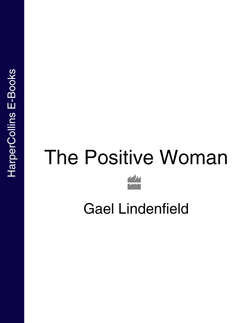Читать книгу The Positive Woman - Gael Lindenfield, Gael Lindenfield - Страница 22
Emotional healing
ОглавлениеWhen you start to love yourself, everybody wants to be around you because you have something very marvellous going on.
Susan Taylor
On their own, the individual and personal experiences which you have highlighted in the last exercise may seem insignificant, but when they come in excessive doses they can turn even the happiest and most carefree children into depressives and cynics – unless they have been followed up by the kind of action which will encourage emotional healing. By this I mean action which allows:
– appropriate feelings to be discharged
– the experience to be assessed in some perspective.
When we are children it is up to our parents and parent figures to help us to heal. Ideally, when something happens which hurts or frightens us, whether it be a broken toy, a sick parent or a nasty nightmare – or indeed a war in the Gulf – a caring adult will encourage us to express our feelings and, if necessary, hold us while we cry or shake with fear. If the emotion should be rage or anger, they will help us to discharge this in a safe and sensible place or channel it into constructive action. When the feelings have died down, they will sit quietly with us and talk about what happened – helping us to understand the whys and wherefores, and accept the imperfections of the people concerned (even if these are themselves!), encouraging us (and showing us how) to put right what we can, or simply giving us ‘tea and sympathy’ to help us bear inescapable pain.
If we have been fortunate enough to receive this kind of help, as we grow older, we learn to take ourselves through this healing process or seek similar assistance from other people. We do not get stuck in the role of ‘victim’ – we get hurt but we are empowered to heal ourselves, pick up the pieces and move on in a positive direction. Moreover, we have the energy, skill and motivation to help others do the same, and we can gain much pleasure and satisfaction from being able to give such support.
The sad reality is that many people have not acquired this precious life-skill. Many parents can’t, or won’t, consistently help their children to heal emotionally from hurt. Sometimes they are simply too busy, too tired or too frightened. Perhaps they themselves have never been taught the skill. It is only a small minority, thank goodness, who are knowingly or intentionally neglectful. But whatever the reason or excuse, the result can still have a powerfully negative effect on the mind and behaviour of the adult who carries a collection of unhealed wounds inside.
In doing this self-development work, we are not concerned with blame recrimination or revenge, but simply facing up to the reality of our inner pain and trying to do something positive about it. We have to learn to give ourselves what we may have missed out on – whether that be the time and space to feel repressed feelings, the opportunity to gather objective information to gain perspective on our experience, or simply comfort for our misfortunes.
So the next step I would suggest that you take is to give yourself a strong dose of self-nurturing. If I were your fairy-godmother I would probably whisk you away for a week to a peaceful and luxurious health farm – but perhaps it is quite fortunate that I do not possess a magic wand because my idea of heaven might well be your idea of hell! But do you know what your idea of a week’s self-nurturing might be? It’s my experience that many people with a negative view of themselves and the world don’t.
Positive people do know how to nurture themselves. They know how to give themselves treats when they are feeling blue or run-down and how to reward themselves if they have done well. Negative thinking people may sometimes seem to know how to do this but their ‘treats’ very often have a sting in the tail! For example:
– the big ‘booze-up’ which leaves you nauseous and depressed the next day
– the double portion of chocolate cake which leaves you feeling bloated and 1lb heavier
– the trip to the cinema to see a horror film which haunts your dreams for weeks afterwards
– an action-packed holiday which leaves you exhausted and financially bankrupt
– a night out with a ‘friend’ who specializes in ‘isn’t it awful’ conversations
– an extravagant new dress which will hardly see the light of day with your kind of lifestyle.
So, when you are doing the next exercise check that you do not sabotage your chances of getting some real nurturing for yourself and certainly do not choose to do things which may masquerade as treats but are merely obsessional, conditioned responses to an addiction. For example: the cigarette to the nicotine addict, the whiskey to the alcoholic, the quiet evening in to the agoraphobic, or the afternoon in town to the shopaholic.
One of the common ways of sabotaging our chances of getting the nurturing we deserve and need is to depend too heavily on others to give it to us. As women, this often means expecting or hoping for a man to come up with the goodies – the well-timed cuddle, the listening ear, the box of chocolates or the surprise holiday in the Bahamas. Don’t knock yourself for this bad habit because the Prince Charming myth has infiltrated even the most liberated female subconscious – just recognize your pattern and replace it with some self-nurturing action over which you have control.
